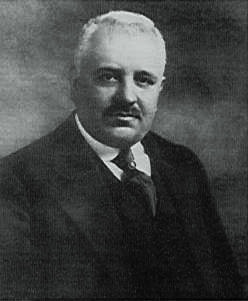Source: Catholic Socialism (1895), pp. 75-76
Francesco Saverio Nitti: Citations en anglais
Source: Catholic Socialism (1895), pp. 65-66 https://books.google.com/books?id=er0J90SXSPkC&pg=PA65
Source: Catholic Socialism (1895), p. 75
Francesco Saverio Nitti est un homme politique italien. Il est président du conseil des ministres du Royaume d'Italie du 23 juin 1919 au 15 juin 1920 et à plusieurs reprises ministre. Il est le premier Président du Conseil provenant du Parti radical historique. Il occupe un rôle politique décisif lors de la Première Guerre mondiale et de l'après-guerre. Il se préoccupa des problèmes du Mezzogiorno, voyant dans l'industrialisation la solution aux problèmes économiques et sociaux de la région. Wikipedia

Source: Catholic Socialism (1895), pp. 75-76
Source: Catholic Socialism (1895), pp. 65-66 https://books.google.com/books?id=er0J90SXSPkC&pg=PA65
Source: Catholic Socialism (1895), p. 75